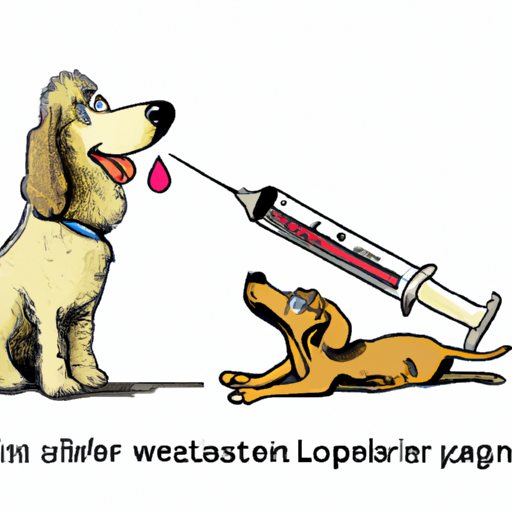What is Leptospirosis?
Leptospirosis is a bacterial disease that affects both animals and humans. It’s caused by a bacterium called Leptospira. Your dog may contract this disease through contact with the urine of infected animals or by drinking, swimming in, or walking through contaminated water.
While the disease can be severe, leading to kidney damage, meningitis, liver failure, and in some cases, death, the good news is that there’s a vaccine available to protect your furry friend.
Why Vaccinate Your Dog Against Leptospirosis?
As a caregiver, it’s your duty to ensure the well-being of your dog. Here’s why you should consider vaccinating your dog against Leptospirosis:
- Prevention is Better than Cure: Leptospirosis can be fatal. Even if your dog survives, they may have long-term health complications.
- Outdoor Exposure: If your dog spends a lot of time outdoors, especially in areas with standing water or a high rodent population, they’re at a higher risk.
- Protection for Humans: Leptospirosis is zoonotic, meaning it can be transmitted from animals to humans. By vaccinating your dog, you’re also protecting yourself and your family.
When and How is the Vaccine Administered?
The initial Leptospirosis vaccine is given to puppies at 12 and 15 weeks of age. After this, annual booster shots are required. The vaccine is injected subcutaneously (under the skin), usually during a routine vet visit.
Here’s a simple table illustrating the vaccination schedule:
| Age | Vaccine |
|---|---|
| 12 weeks | Initial Vaccine |
| 15 weeks | Initial Vaccine Booster |
| Annually | Booster Vaccine |
Possible Side Effects of the Vaccine
Like any vaccine, the Leptospirosis vaccine can have side effects. Although rare, these may include:
- Mild fever
- Decreased appetite and activity
- Swelling or tenderness where the vaccine was given
- More severe reactions like vomiting, diarrhea, or difficulty breathing
Always monitor your dog after vaccination and notify your vet if you observe any adverse reactions.
FAQ
Q: Can all dogs receive the Leptospirosis vaccine?
A: While most dogs can, puppies under 12 weeks and severely ill dogs should not be vaccinated. Always consult your vet.
Q: Is the vaccine 100% effective?
A: No vaccine is 100% effective, but it significantly reduces the chances of your dog contracting the disease.
Q: Are there natural alternatives to the vaccine?
A: No natural alternatives have been proven as effective as the vaccine. Always discuss options with your vet.
Q: What if my dog is primarily indoors?
A: Even indoor dogs can be at risk, especially if they come into contact with rodents or contaminated water.
Remember, as a caregiver, it’s up to you to make the best health decisions for your four-legged companion. Vaccination against Leptospirosis is a valuable step in protecting them from this dangerous disease.



